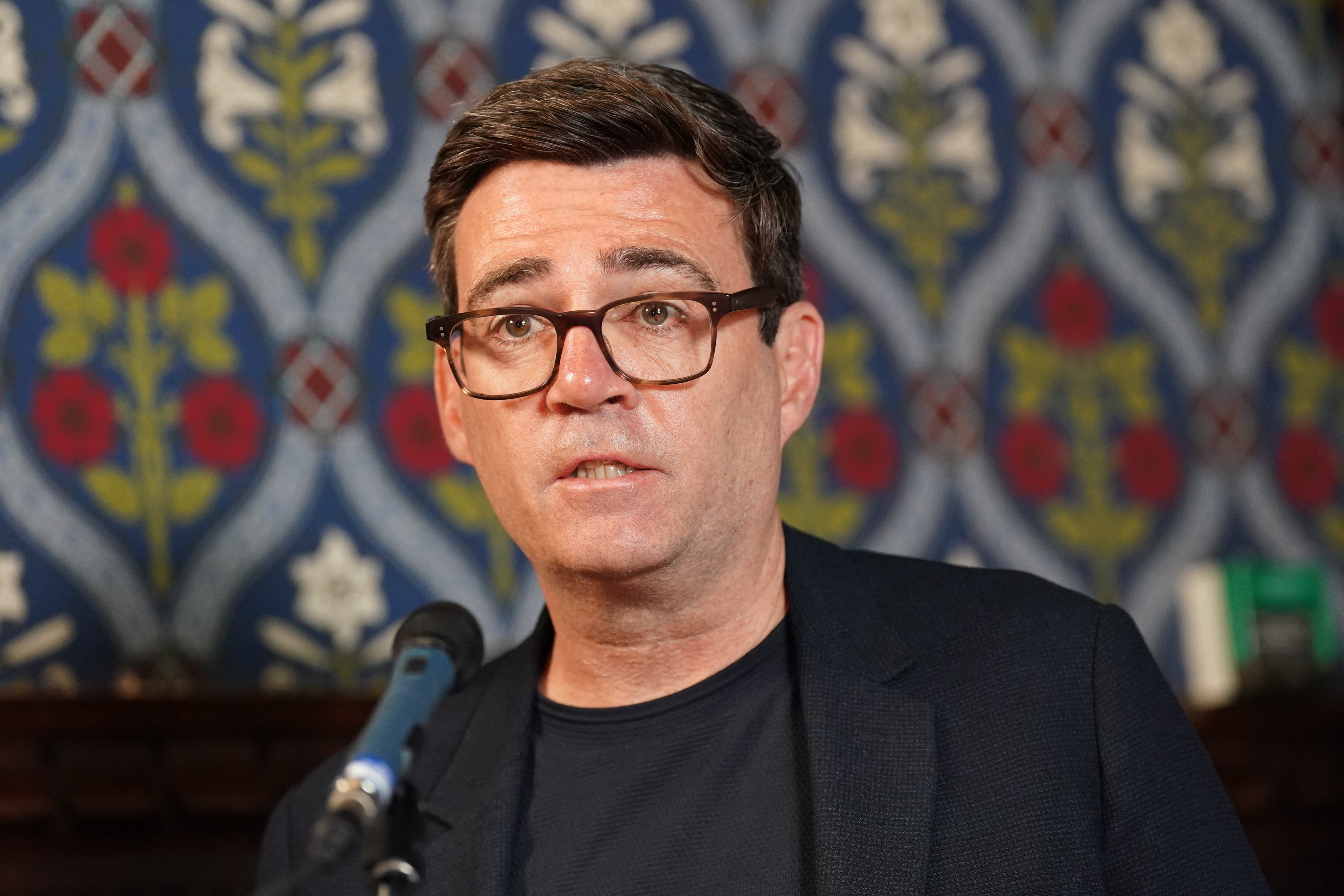Andy Burnham wants the best for infected blood scandal victims – but it won’t work
The former health secretary makes a powerful case for a ‘Hillsborough law’, imposing a duty of candour on public servants, writes John Rentoul. Yet his solutions are unlikely to help avoid similar disasters in future


There is no doubt that Andy Burnham, the former health secretary who is now responsible for health spending in Greater Manchester as mayor, spoke for millions on the Today programme this morning about the infected blood inquiry: “Every main party in parliament let the families down; the question is what now and what we do about that.”
He has led the way in calling for corporate manslaughter charges to be brought against Whitehall departments, and now advocates a “Hillsborough law”, imposing “a duty of candour on all public servants”.
But he should be cautious about the rush to legislation as the instinctive response to evidence of system failure. He is quite right that the roll call of bureaucratic denial and obfuscation in “the Post Office, Hillsborough, Grenfell, Windrush, blood, nuclear test veterans” suggests that there is something fundamentally wrong with “the system”. But it is unclear how prosecutions of Whitehall brass plates and new laws intended to force civil servants and politicians to tell the truth would help.
Burnham’s frustration is understandable. He says he was lied to about infected blood as health secretary in 2009. Letters were drafted for him to sign that said no one had been “knowingly” infected by blood products, he says, which was “the line” but was untrue. This sounds similar to the defence of successive ministers responsible for the Post Office, who told the inquiry into the Horizon IT scandal that they were told things that were not true and that they had no way of knowing what the truth was.
There may also be an element of Burnham wanting to sound as fierce as possible in defence of the victims of maladministration to discharge some of the responsibility he feels as one of the many ministers in charge.
But his solutions are unlikely to help avoid similar disasters in future. Prosecuting a Whitehall department for corporate manslaughter seems particularly pointless: it would take up the time of current officials who have no responsibility for the infected blood scandal, and if it ended in a fine, that would involve one part of government paying money to another part.
There is a popular appetite for individual doctors, administrators and politicians to pay a price, but corporate manslaughter charges cannot apply to individuals – the clue is in the name. If there is evidence to support the prosecution of individuals under existing law, clearly that should happen, but demands to strip Ken Clarke, another former health secretary, of his peerage seem to be motivated by vindictiveness rather than justice.
Hence Burnham’s proposed “Hillsborough law”, designed to force public servants to tell the truth. He said: “That is the only way we can break this cycle and have a situation where people tell the truth at the first time of asking.” He is right that one of the disgraceful findings of Sir Brian Langstaff’s inquiry is that officials covered up bad decisions and hid or destroyed evidence.
But the solution to that is unlikely to be further punitive legislation. Public servants are already under an obligation of truthfulness. Presumably officials concealed evidence precisely because they were fearful of the consequences or their errors becoming known. All the evidence of successful safety cultures in the private sector, such as the airline industry, is that incentives have to encourage openness without blame.
It is quite right that individual wrongdoing should be punished if it can be identified after such a long time. And it is important that compensation is paid, regardless of the cost to the public purse, so that the price signal sends a message through “the system”.
But full justice cannot be done, and full reparation cannot be made. One of the worst things about the infected blood tragedy is the length of time it has taken to establish the truth. Justice delayed is justice denied, and nothing can make up for that now.
Burnham’s solutions wouldn’t see justice done more quickly in future – and could possibly make matters worse.



Join our commenting forum
Join thought-provoking conversations, follow other Independent readers and see their replies
Comments